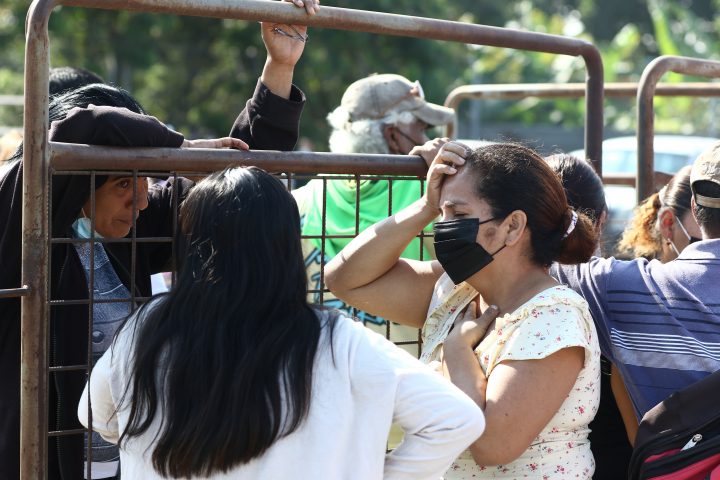WARNING: This story contains disturbing content. Reader discretion is advised

A battle between gangs in a prison killed at least 116 people and injured 80 in what authorities are calling the worst penitentiary massacre in Ecuador’s history. At least five dead were reported beheaded, officials said Wednesday.
President Guillermo Lasso decreed a state of emergency in Ecuador’s prison system, allowing the government to deploy the police and soldiers to penitentiaries among other powers. Authorities attributed Tuesday’s bloodshed at the Litoral penitentiary in the coastal city of Guayaquil to gangs linked to international drug cartels fighting for control of the lockup.
Lasso, visibly affected, said at a news conference that what was happening in the Guayaquil prison was “bad and sad” and he could not for the moment guarantee that authorities had regained control of the lockup.
“It is regrettable that the prisons are being turned into territories for power disputes by criminal gangs,” he said, adding that he would act with “absolute firmness” to regain control of the Litoral prison and prevent the violence from spreading to other penitentiaries.
Images circulating on social media showed dozens of bodies in the prison’s Pavilions 9 and 10 and scenes that looked like battlefields. The fighting was with firearms, knives and bombs, officials said. Earlier, regional police commander Fausto Buenano had said that bodies were being found in the prison’s pipelines.

Outside the prison morgue, the relatives of inmates wept, with some describing to reporters the cruelty with which their loved ones were killed, decapitated and dismembered.
“In the history of the country, there has not been an incident similar or close to this one,” said Ledy Zuniga, the former president of Ecuador’s National Rehabilitation Council.
Zuniga, who was also the country’s minister of justice in 2016, said she regretted that steps had not been taken to prevent another massacre following deadly prison riots last February.
Earlier, officials said the violence erupted from a dispute between the “Los Lobos” and “Los Choneros” prison gangs.
Col. Mario Pazmino, the former director of Ecuador’s military intelligence, said the bloody fighting shows that “transnational organized crime has permeated the structure” of Ecuador’s prisons, adding that Mexico’s Sinaloa and Jalisco New Generation cartels operate through local gangs.
“They want to sow fear,” he told The Associated Press on Wednesday, urging the government to temporarily cede control of the prisons to the National Police. “The more radical and violent the way they murder,” the more they achieve their goal of control, he added.

Ecuador’s president said that care points had been set up for relatives of the inmates with food and psychological support. He added that a $24-million program to address the country’s prisons will be accelerated, starting with investments in infrastructure and technology in the Litoral prison.
The former director of Ecuador’s prison bureau, Fausto Cobo, said that inside penitentiaries authorities face a “threat with power equal to or greater than the state itself.” He said unarmed security forces are entering prisons with shields and being met by inmates with high-caliber weapons.
In July, the president decreed another state of emergency in Ecuador’s prison system following several violent episodes that resulted in more than 100 inmates being killed. Those deaths occurred in various prisons and not in a single facility like Tuesday’s massacre.
Previously, the bloodiest day occurred in February, when 79 prisoners died in simultaneous riots in three prisons in the country. In July, 22 more prisoners lost their lives in the Litoral penitentiary, while in September a penitentiary center was attacked by drones leaving no fatalities.
- Gas station clerk stabbed several times during violent attack at Ultramar in Montreal
- Canada’s most wanted list: Toronto suspect in fatal shooting at No. 1
- Man acquitted in Tina Fontaine murder found dead, says her aunt
- Canadians should expect politicians to support right to bail, Virani’s office says



Comments